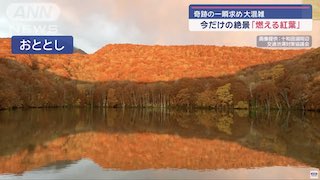FUKUOKA, Jun 24 (News On Japan) - The series 'Sonaeru,' which focuses on disaster preparedness, brings attention to an incident from July 2023 when record-breaking rainfall in Fukuoka Prefecture's Kurume City triggered a massive landslide in the Minoo Mountains, resulting in one fatality. This region faced a similar disaster 300 years ago, with historical documents offering clues on how to prepare for such unexpected events.

In Take-no district of Tanushimaru Town, debris from the landslide is still piled high, and damaged rooftops remain unrepaired as the area braces for another rainy season.
The landslide that struck Tanushimaru Town in July 2023 engulfed several homes at the base of the Minoo Mountains, leading to one man's death. Residents, stunned by the scale of the disaster, echoed sentiments of disbelief.
Affected Residents:
"We never imagined this could happen."
"We never thought our home would be hit by a landslide."
"The idea that the entire valley could be buried was inconceivable."
The disaster extended beyond designated landslide warning zones, highlighting the unexpected nature of such events. Interestingly, this was not the first time the area faced such devastation.
Koji Nishiyama, Associate Professor, Kyushu University Graduate School of Engineering: "A similar event occurred almost 300 years ago in this very area."
Associate Professor Koji Nishiyama has been studying "Kueyama Monogatari," an ancient document detailing a massive landslide in the Minoo Mountains in 1720 (Kyōhō 5), which claimed over 50 lives.
Nishiyama: "The document describes rocks and water flowing down, with Tokumura and Takenomura being the hardest hit. Many narrowly escaped with their lives. The affected areas in the historical account are almost identical to those hit by the recent disaster."
Nishiyama also points out similarities in the extent of the damage between the past and present landslides.
Nishiyama: "Takenomura, now Take-no district, was affected in both instances, with the landslide spreading beyond current warning zones."
As history repeats itself after 300 years, the question arises: were the lessons from the past utilized in modern disaster preparedness?
On June 19th, a disaster preparedness workshop was held at a local elementary school in Take-no district, with Nishiyama highlighting the dangers of relying too heavily on personal experience.
Nishiyama: "A human life spans only 80 to 90 years, but disasters in the same location can occur once every few hundred years. This means people often lack direct experience, leading to shock when such events happen."
He emphasized the importance of passing down lessons learned from disasters to future generations.
Local Resident: "Last year’s disaster made it clear that we never know when such events might occur. Evacuating quickly and ensuring family safety is paramount."
Nishiyama: "Understanding the types of disasters that have occurred in the region and assessing risks, such as the presence of rivers or mountains nearby, is crucial for future preparedness."
By learning and sharing regional history, communities can better prepare for unexpected disasters. As the rainy season approaches, these lessons could be vital for safeguarding lives.
Source: FBS














